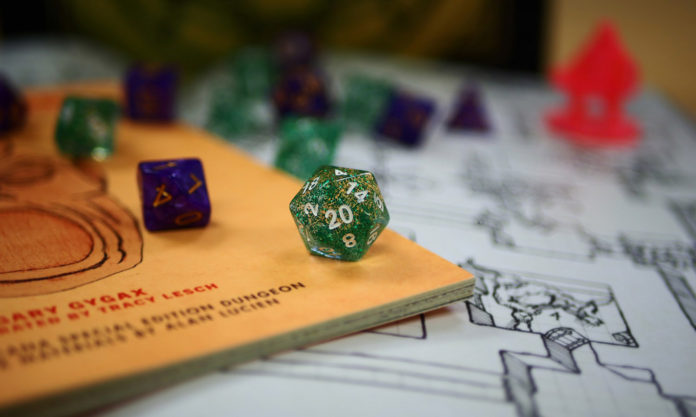Dungeons and Dragons has experienced a resurgence in the last few years and its reputation is at least 50% less dorky than it was when this editor played in junior high. Part dice game, part play-acting, D&D gives back what you put into it. The more creativity you bring to the table, the more memorable moments will arise. You can choose to simply move your character from place to place, but it’s a lot more fun if you move your character in character.
In a post on DIY MFA, Kris Hill says that character creation and interaction in D&D can help you develop dynamic characters in your writing. “If you want to experiment with parts of your planned story before you commit time to writing it, then collaborative storytelling can help you flex narrative muscles in a low stakes and fun way,” Hill says.
During game sessions, you’ll be confronted with a variety of unexpected plot points, to which you’ll respond as your character would. “[A]s you play your character, you’ll occupy their headspace and become intimately familiar with not only the choices they make, but how they come to those decisions and how they rationalize the outcome,” Hill notes. “This works well even if the setting that you’re playing in differs vastly from the setting of your story because decision making, rationalization, and prioritization are deeply rooted in who your character is as a person.”
Because D&D is a group game, you’ll also have the chance to ping your character against multiple other players. Unlike in your writing, you don’t control any of these interactions. “As your party moves through the game together you’ll decide how your character works in a group, how they collaborate to solve problems, and how they argue or debate to defend their positions against people they must continue to be around,” Hill says. “You’ll see what qualities they value in their party members and how they form friendships and develop trust.”
You’ll also have the chance to see how others react to your character, in person and in real-time. Seeing the other players’ reactions can help you gauge how well you’re portraying the nuances of your hero’s personality.












